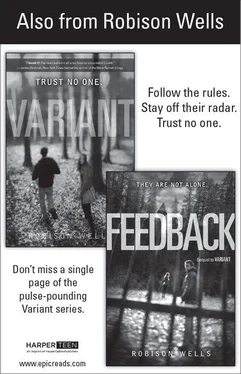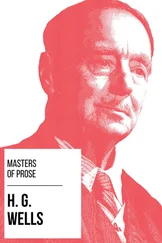Betsy moved to the paper and read the short paragraph carefully.
“They’re accounted for,” she said with a frown. “That doesn’t mean they’re alive.”
“It’s something,” Aubrey said. She stepped back from the board, getting a wide view. They’d come here three times a day for the last two days, and very little changed. There’d been no news out of Sanpete County other than a two-day-old mention of a skirmish at a roadblock near Manti. The article listed a few names, but they were no one Aubrey knew.
Betsy turned to face Aubrey. “Ready?”
Aubrey took a final glance at the board and then nodded.
“They’re in a good position, I guess,” Betsy said as they turned and started back toward Tent 209. “There’s not much on the reservation that would be a target for terrorists.”
“Any idea where everyone went?” Aubrey asked.
“I think we had more time than most,” Betsy said, and then shared a wry smile. “This isn’t the first time the Utes have fought the government. And we know the backcountry inside and out.”
“If everyone’s accounted for, they should be here. Right?” Aubrey had tried looking through the bunkers for people she knew, but it was hard. The army had strict rules about moving around the camp and you couldn’t go into any tent other than your own.
“Maybe. A lot went down to the South Reservation. Maybe they had better luck. Or got sent to a different camp.” Betsy nodded and put her hands in the pockets of her jeans. It was the beginning of October now, and the winds were getting colder.
“Did you grow up in Roosevelt?”
“No,” Betsy said. “I’m from the middle of nowhere—Whiterocks. Ever heard of it?”
Aubrey shook her head.
“No one has,” Betsy said with a laugh. “When I was six, my father moved me up to Roosevelt to live with my aunt. Better schools. I used to worry so much about grades. Last year, I actually freaked out because I got a B in Trig. I mean, I thought my life was over. Now I wonder if any of that will ever matter.”
“It will,” Aubrey said. “Wars end. Think of it: there’s more than three hundred million people in the United States. Even if Major Bowman’s estimate is accurate—180,000 people killed—then there’s still three hundred million who have to go on with their lives.”
Betsy nodded, exhaling a reluctant laugh. “That’s kind of a callous way to look at it.”
“It’s not callous,” Aubrey said. Somehow, talking about it—even if Aubrey wasn’t sure if she believed it—made her feel more confident. “It’s just true. You’ll still go to college. Life will get back to normal.”
“But—”
“Well,” Aubrey corrected, “it won’t go back to normal . But it will go back to better than this.”
Betsy grinned. “It’d be hard to be any worse.”
Aubrey laughed and looked out to the south. Several hundred yards away she could see the fence that surrounded the bunkers, and one of the many watchtowers. She’d been to the fence every day—fifteen-foot-tall chain-link, topped with razor wire. An identical second fence stood thirty feet past it. It wasn’t clear if it was intended to keep people out or in. Aubrey had heard rumors about antiaircraft guns somewhere among the tents, but she hadn’t seen them.
She touched Betsy’s arm as they approached Tent 209. “I think I’m going to walk some more,” Aubrey said. “I’m really getting sick of being in there.”
Betsy smiled and nodded. “Want company?”
“Sure.”
They turned away from their tent and headed south. Aubrey was sure that Betsy knew where they were going—Betsy had walked with her before.
“Hey guys!”
Aubrey turned to see Kara running from the tent. A guy was walking behind her.
“Where’ve you been?” Kara asked. “We got new people in the tent next door. A bus came with eight newbies.” She lowered her voice to a whisper so only Betsy and Aubrey could hear. “And they’re all guys —cute ones.”
Aubrey looked up at the approaching boy. He was tall, with blond hair and a thin face. One arm was in a cast and sling, and he had two black eyes. As he reached the girls he stretched out his hand.
“Alec Moore,” he said.
“Aubrey,” she answered.
Betsy shook his hand. “I’m Betsy Blackhair. We were just going for a walk. Want to come?”
Alec looked surprised. “They let you do that? I thought we were kind of confined to the tent.”
“No,” Kara said, laughing more than the situation warranted. “As long as we’re back by six o’clock. They shut the tents after dark, and they have a roll call to make sure we’re there. I heard about a boy who was out past curfew and they sent him to some detention or something.”
Alec looked at his watch. “Then I guess we have a little time. Where are we headed?”
Aubrey turned and began walking. She hadn’t really wanted so much company.
“The fence, I bet,” Kara said. “It gives a gorgeous view, especially this time of night.”
“Sounds good,” Alec said.
They walked for several minutes, and Aubrey let Kara and Betsy do most of the talking. Alec was from a private school up in Salt Lake and was thinking of joining the Air Force Academy. He said that he’d been talking to the soldiers earlier—even the guards at the warehouse—about life in the military. Listening to him talk, you’d think that nothing had ever happened—that they hadn’t been torn from their friends and families and imprisoned with no chance to appeal.
“How were you caught, Alec?” Aubrey asked, her curiosity about his injuries finally overcoming her.
“Caught?” Alec said. “I wasn’t caught—I was rescued.”
She looked back at him and saw that Kara’s arm was slipped into his. She was positively beaming.
“Rescued?” Aubrey said, not trying very hard to mask her annoyance. “You just got here. Were you running from the police?”
“Oh no,” Alec answered. “I was camping. We’d been up there for a week before an avalanche chased us off the mountain. We didn’t even know about the evacuations until search and rescue found us.”
“That sounds scary,” Kara said.
“We all made it out okay,” Alec said, winking his black eye. “Kind of exciting, really.”
Aubrey frowned. “How were you camping for a week? Weren’t you in school?”
“Private school,” he answered. “Year round. I was off track.”
They cleared the last bunker and reached the fence. The ground sloped to the south, taking a sharp decline just after the second fence. In the distance, Aubrey could see where they came from—a large collection of buildings all connected by fences and watchtowers. From this distance she just couldn’t tell which one had been hers. One of them, she had to hope, still held Jack.
Aubrey remembered her promise. She wouldn’t do anything stupid. But she also remembered Jack’s desperate plea—if she was going to get him out, she couldn’t let anyone find out she was a Positive, a Lambda.
She looked at the fence in front of her. There was no way she could cut it—she hadn’t seen anything like cable cutters in the tent, even in the supply station. And one glance at the razor wire was enough to tell her that she couldn’t climb it. Even with being able to disappear, this fence was impossible to cross.
Maybe she could go back to the decontamination rooms, she thought. They’d be guarded, but guards were easier to avoid than razor wire.
Of course, the fences weren’t her only problem. The buildings were surrounded by armored vehicles, tanks, watchtowers, and there always seemed to be hundreds of infantrymen nearby—drilling or working or patrolling.
Aubrey tried to picture Jack, tried to guess where he was and what he was doing. He’d be safe, she thought. Eventually they’d realize that he wasn’t a Positive. Maybe he was already released, back in one of the tents and trying to find her.
Читать дальше












